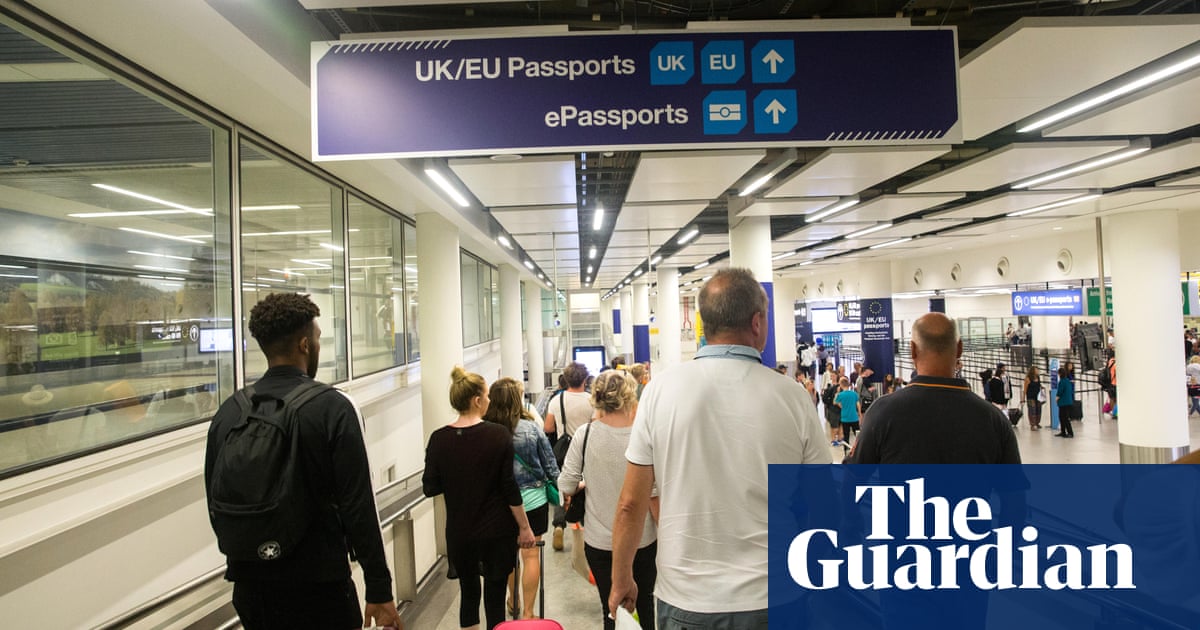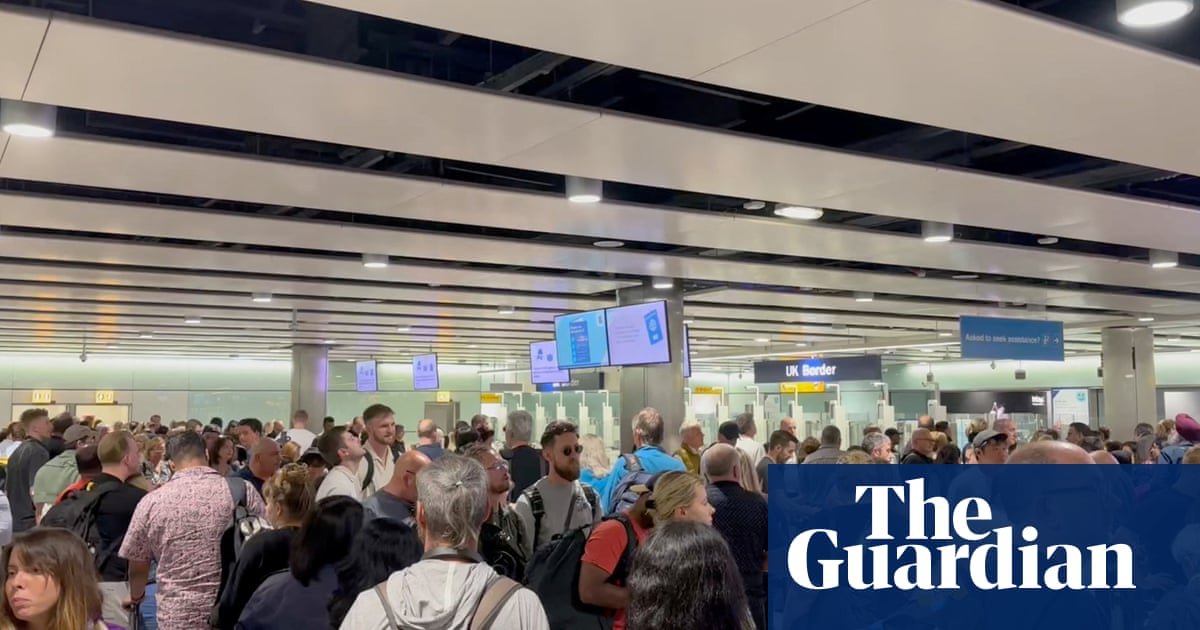
Boris Johnson has clashed with Brussels over an 11th-hour attempt to save British passport holders from hours of delays at European airports from the end of the year.
The government is seeking continued use by UK nationals of the automatic e-gates used by EU nationals at airports and Eurostar terminals. The move is seen by the European commission as an attempt to keep Britons in faster lanes rather than having to queue up with the rest of the world after the end of the transition period.
Studies suggest the loss of access to automatic gates and the need for extra passport checks could delay Britons by an extra hour as they move through some European airports. The issue has been raised in the ongoing trade and security negotiations, and the government has made contact with a number of member states in an attempt to retain access to the e-gates.
The commission is adamant that giving UK nationals such a right would breach EU law. “The Schengen border code is restrictive on this,” says one internal EU document seen by the Guardian.
It is understood that the commission called in representatives of the member states for a presentation on “treating UK nationals at the Schengen borders” after the issue was raised by the British negotiating team.
At the meeting on 12 October, it was asked whether e-gates could be opened to UK nationals carrying biometric passports. The commission responded: “No, EU law currently reserves use of e-gates to holders of EU/EEA/CH passports.” CH is the country code for Switzerland. Iceland , Liechtenstein and Norway are in the European economic area (EEA) but not the EU.
A senior EU diplomat said: “Having grown up in Brussels, Boris Johnson values the ability to travel freely to the continent. So it is perfectly apt that the UK is now asking the EU to change its own laws to accommodate London on something it always had. We are probably in for another re-run of ‘the EU is being unfair’, ‘we’re only asking for a Canada-style deal’. It isn’t.”
The UK allows citizens of Australia, Canada, Japan, New Zealand, the US, Singapore and South Korea to use biometric passports to pass through automatic gates on arrival. The government has said in a paper on the UK’s post-Brexit border operating model that it will “ensure that EU, EEA and Swiss citizens may also continue to use our e-passport gates and the existing queueing arrangements”.
But in a sign that EU intransigence on the issue could lead to a tit-for-tat restriction on European travellers, the paper adds that “this will be kept under review”.
The commission has advised the member states that the e-gates could be used where a UK national is exiting its territory, but not on entry. The member state would have to have a national entry-exit system and the passport of the British national would need to be stamped, reducing the benefits of use of the automated border control.
Officials at one of Europe’s biggest airports, Schiphol in Amsterdam, through which roughly 5 million people travel from the UK each year, expect British travellers to face considerable delays. As it stands, Britons spend on average around 25 seconds at the passport control desk at Schiphol. It is estimated this will increase to 40-45 seconds next year due to the need for additional document checks.
With each person taking longer to get through passport control, it could take between 50 minutes and an hour more for a passenger on a busy flight to get through the system.
It is understood that EU capitals have been informed that it may be possible for UK nationals to use the e-gates at some point in 2022 should a new IT project registering entry and exit be rolled out by the EU on current schedule. The system’s introduction has already been delayed by two years.
The European commission and the Home Office declined to comment.












